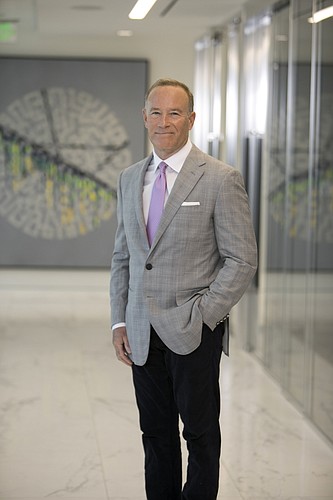Over the summer, St. Petersburg financial advice website The Penny Hoarder’s high-profile lawsuit against competitor Fluent Inc. thrust intellectual property law issues into the spotlight. The multimillion-dollar action brought by Penny Hoarder founder and CEO Kyle Taylor alleged copyright infringement and violations of non-compete agreements that resulted in the theft of source code.
For recently appointed Greenberg Traurig partner Scott Doyle, cases like The Penny Hoarder’s are indicative of why Florida — with fast-rising tech sectors in Tampa Bay and Miami — stands to be an intellectual property law battleground.
“Florida, historically, has not done as much in technology,” says Doyle, who practiced in Washington, D.C., before joining Greenberg Traurig’s intellectual property and technology practice in Tampa earlier this year. “But now because everybody’s moving from the East coast to Florida and there's a lot of money here, and the university system is set up very nicely, I just think it’s going to just go crazy in Florida.”
“It’s a tough world and everybody gets ripped off. I've worked with some of the largest companies in the world and I've worked with small companies, and many don’t do [IP] right.” Scott Doyle, shareholder and intellectual property lawyer at Greenberg Traurig’s Tampa office
As a result, Doyle says, more unscrupulous competitors will look to Florida to exploit weaknesses in companies’ IP protections, whether that means stealing trade secrets, violating patents, poaching employees, copying brand assets, infringing on trademarks or any number of other shady tactics. Therefore, it’s incumbent upon businesses to take a proactive, ever-vigilant approach to IP.
Even then, he says, “It’s a tough world and everybody gets ripped off. I've worked with some of the largest companies in the world and I've worked with small companies, and many don’t do [IP] right.”
Regardless of size and scale, businesses can minimize theft of their ideas and inventions by first having a good understanding of what constitutes IP. An IP lawyer, Doyle says, can offer advice about the critical differences between patents, trade secrets and copyrighted material. That can help a company formulate a strategy to keep rivals from profiting from its innovations.
“Coca-Cola, obviously, their formula has been a trade secret for all these years,” Doyle says, “but one of the aspects of a patent is it’s going to be public.”
Doyle, 56, has been an intellectual property litigator for most of his career, having earned a law degree from George Mason University. But he has a background in electrical engineering and worked for U.S. defense contractors in areas such as military telecommunications and computer engineering.
“I had a conversation with my father back in 1979,” Doyle says, “and he essentially said, ‘Look, I’m paying for your college, but you've got to go into electrical engineering.’ I said, ‘Well, I'm not sure I want to do engineering.’ And he said, ‘If it doesn't work out, you can always be a lawyer.’ And that's exactly what happened.”
Augmented by a clerkship at the International Trade Commission, a major forum for international patent suits, Doyle says his technical background has given him a big leg up in the world of intellectual property law, because he understands the pressures faced by businesses, particularly in the tech sector, that are bringing new, innovative products to market and need customers and capital.
“Everybody’s focus is on developing the product as quickly as they can or doing deals,” he says. “Where people make mistakes is they are so hot and heavy to do deals with players in the industry that they end up giving away their IP — they license their IP … and they don't get anything back … except that maybe the larger player will take the application and help them market it. I call it IP leakage. It’s like having a boat with a bunch of holes in it.”
When it comes to IP protection, though, it’s possible to have too much of a good thing. Small businesses sometimes go to great lengths to patent anything and everything, when their resources would be better deployed in other areas that would help cash flow. “You’ve got limited funds, so find out what's the most valuable thing you have and work on getting your patents for that,” Doyle says.
When a product or service is ready for a business deal, that’s the time to get tough, be thorough and spare no expense when it comes to IP.
“It's got to be part of the grain of your company to know how to protect your stuff,” Doyle says. “And then once you start deals and do technology transfer agreements with whomever it might be, you’ve got to say, ‘Look, just because we're doing a deal with you doesn't mean that you get a license to our entire patent portfolio.’”
(This article has been updated to correct a typographical error in one of Scott Doyle's quotes.)






